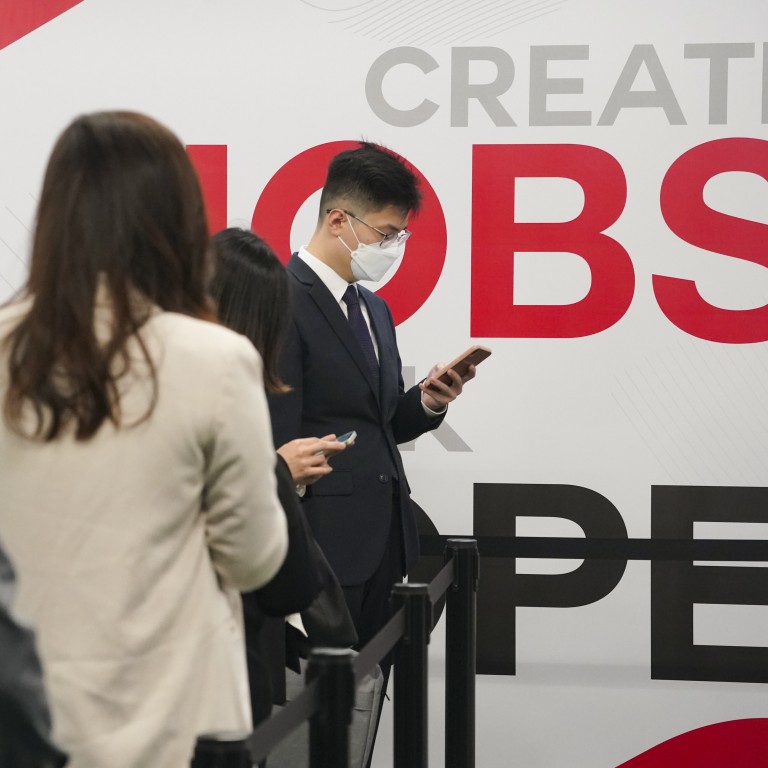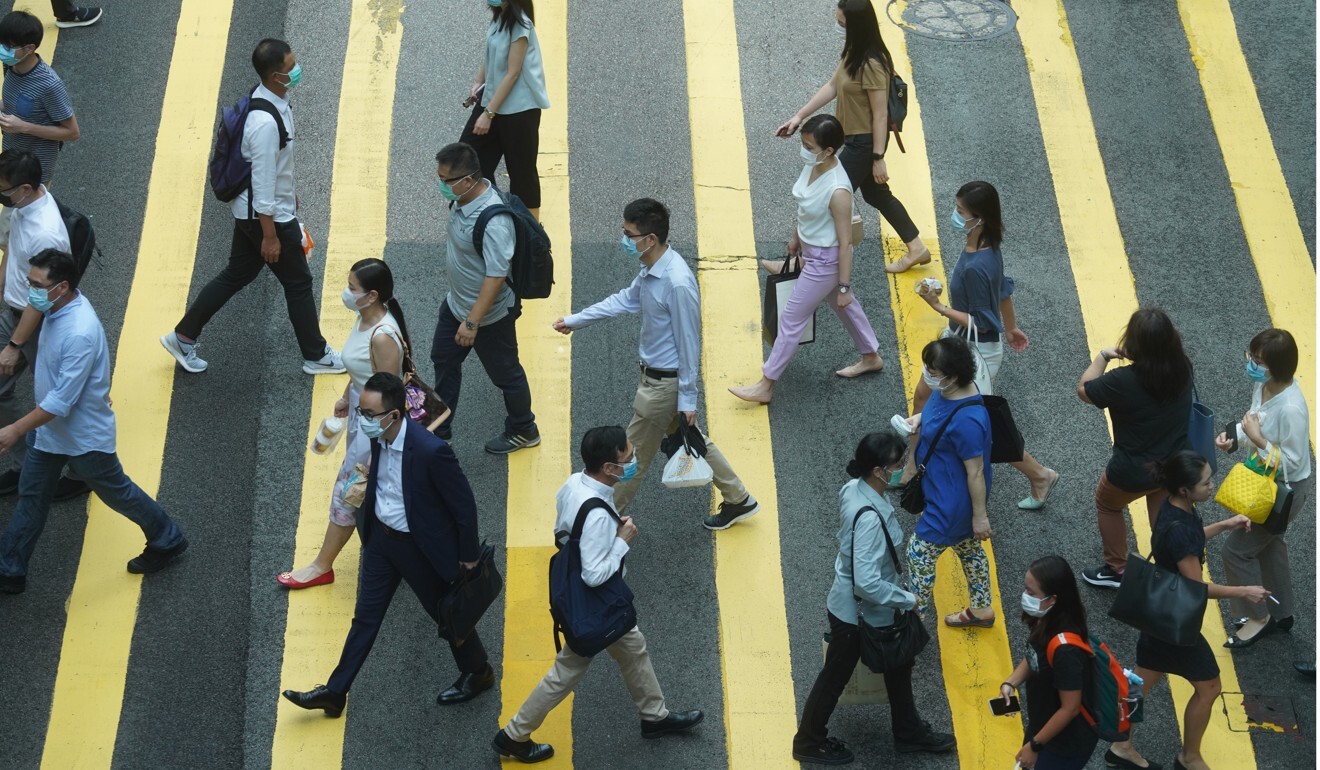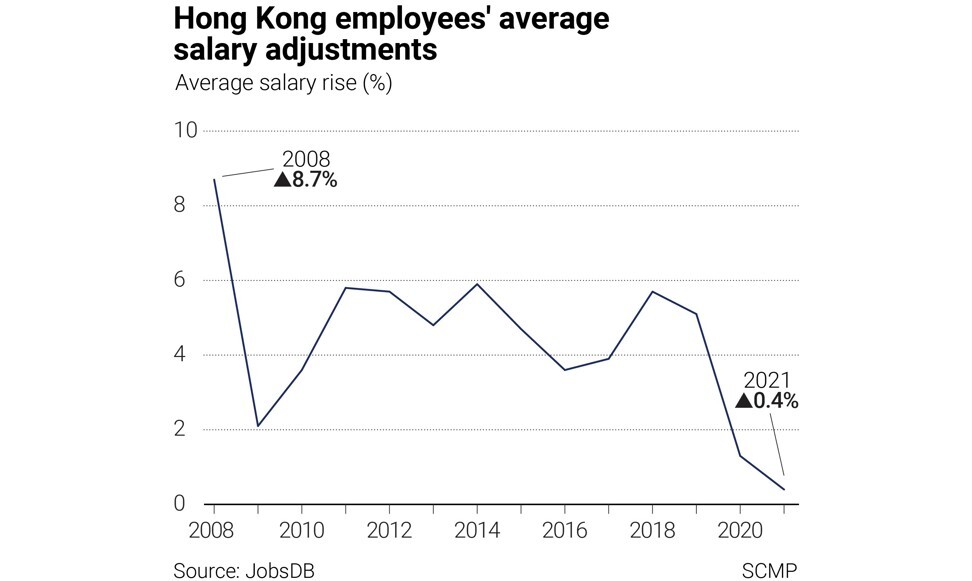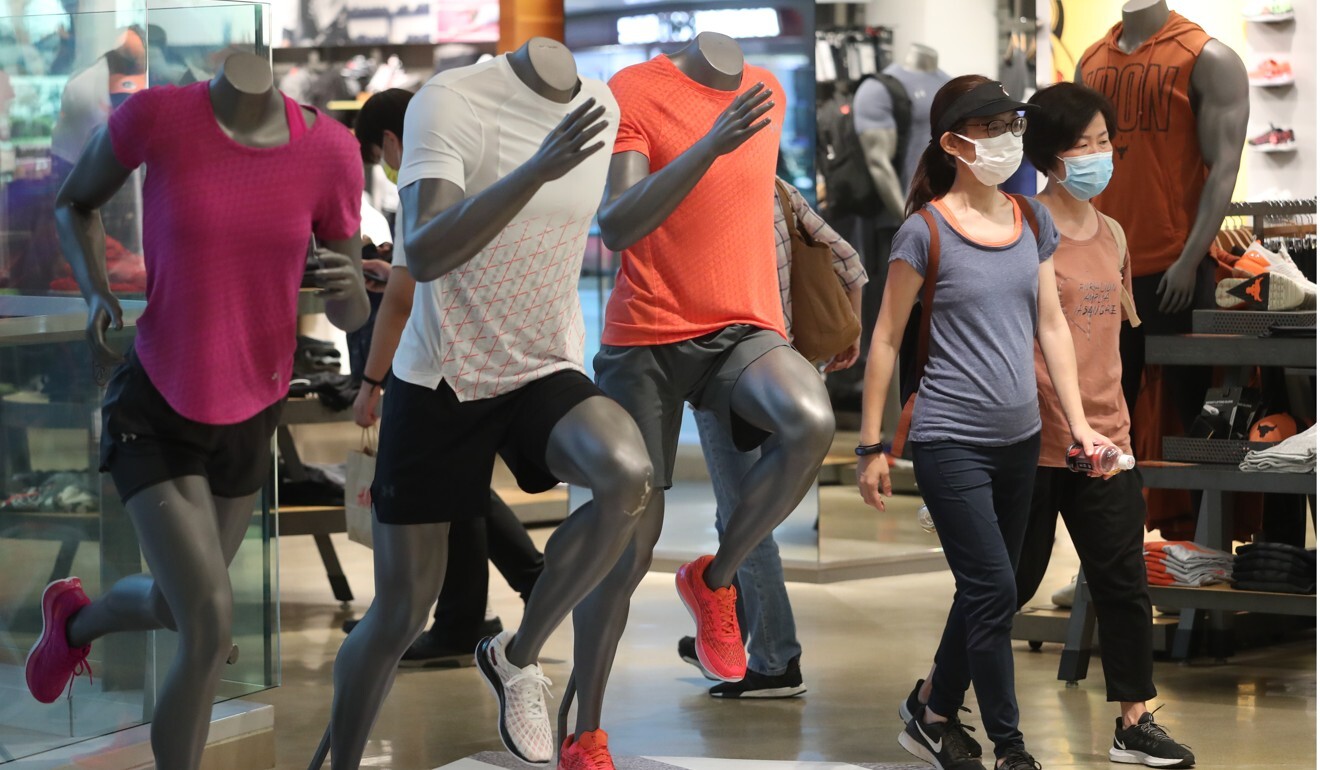
Small pay rises for some Hong Kong workers but most face wage freeze or cuts, survey shows
- Reality could be worse as annual survey does not reflect large number of workers on unpaid leave, agency boss says
- Glimmer of hope if Covid-19 pandemic restrictions ease, but overall jobs outlook stays stagnant
Average pay went up by just 0.4 per cent this year, the JobsDB survey of more than 4,200 full-time workers found. More than half had no pay rise, and about one in 10 took a wage cut.
“As many employers and firms in Hong Kong were more cautious about the economic outlook, they were relatively prudent in salary adjustments,” JobsDB chief executive Isaac Shao Kwan-shek said.
The annual survey, conducted in March and released on Monday, showed only about 34 per cent of employees received a rise over the past 12 months, 55 per cent reported a salary freeze, and the rest, 11 per cent, were hit with a pay cut.

In 2020 and 2019, the survey found average pay rises of 1.3 and 5.1 per cent respectively. In 2008, when the survey started, average pay increases were at their highest at 8.7 per cent but dropped to 2.1 per cent the following year.
About half of those polled this year were open to working overseas – up from 44 per cent in 2020 – and nearly a quarter of those were considering emigration.
Hong Kong jobless rate drops to 6.4 per cent as effects of coronavirus crisis ease
The survey was unable to reflect the increased unemployment rate over the past year, Shao said. The jobless figure reached a 17-year high of 7.2 per cent between last December and February this year with 261,600 out of work, although it improved to 6.4 per cent between February and April.
Some of the biggest pay reductions this year were among employees in industries particularly hard hit by the pandemic, including hospitality and tourism (where pay declined 8 per cent), retail sales (minus 6.4 per cent) and food and beverage (minus 4 per cent).

But jobs in digital marketing, e-commerce and social media saw an average pay rise of 3.8 per cent, while those in the legal, compliance, media and advertising fields saw increases of between 3 and 3.3 per cent.
More than half of the respondents had a negative view of the employment outlook, an improvement from the three-quarters who felt that way last year. More than a quarter feared their jobs or their department would be made redundant.
Jobless rate will drop noticeably on back of economic rebound: finance minister
Among the 49 per cent of respondents open to working outside Hong Kong, more than half cited “gaining exposure and broadening their horizons” as the reason. Younger respondents aged 25 or below were more inclined to work elsewhere or emigrate.
Shao expected the job situation to remain stagnant or improve slightly over the coming months depending on the local coronavirus situation.
“As measures such as working from home and the ban on group gatherings are relaxed, industries such as food and beverage as well as retail can expect a more optimistic outlook,” he said.

Vacancies advertised on the jobs portal rose 39 per cent from January to April this year compared with the same period last year, Shao added, and this also reflected a slow recovery.
Edmond So Wai-chung, general manager of the employment agency Besteam Personnel Consultancy, said the survey results might not fully reflect the reality of employees who were put on no-pay leave, suggesting actual salary rises could be even lower than 0.4 per cent.
He expected salary adjustments in the coming year to stay “horizontal”, with only a few jobs seeing a pay rise.
Earlier this month, pay trend indicators for civil servants showed workers in the upper, middle and lower salary bands could face salary cuts of 2.04 per cent, 0.54 per cent and 0.68 per cent, respectively.
“For major improvements in salary adjustments, borders must reopen and travelling has to become easier,” So said. “External factors including the pandemic situation as well as inoculation rates could also impact the economic outlook.”

